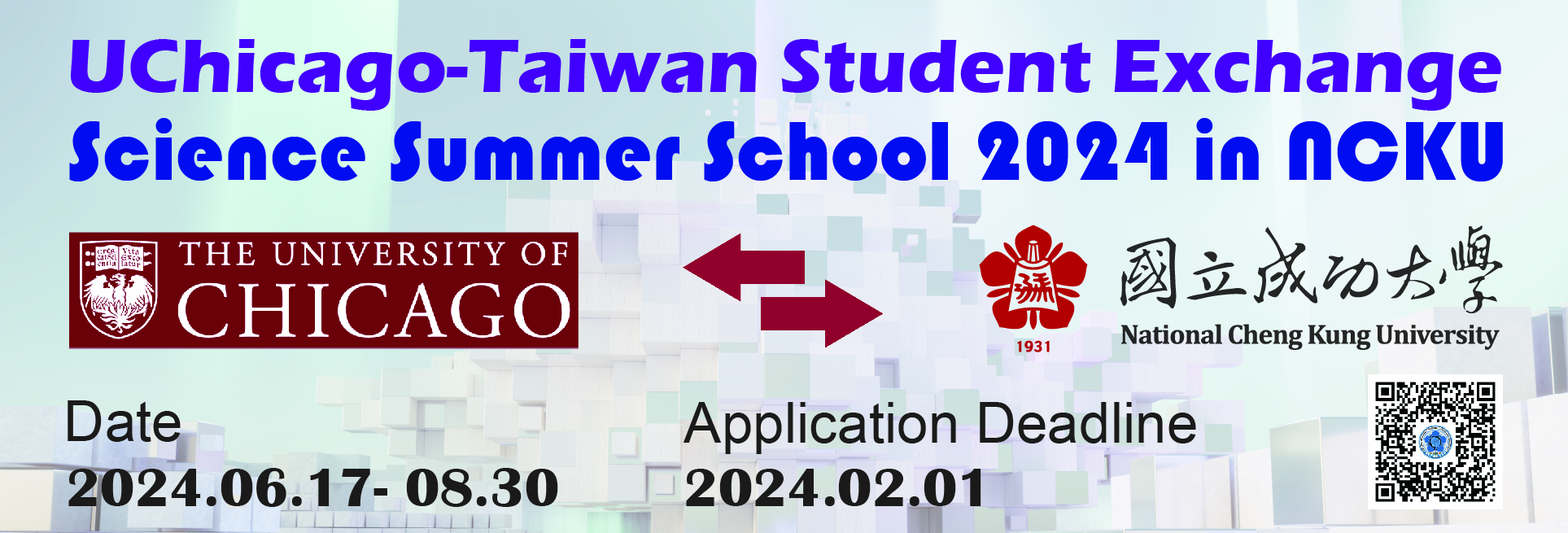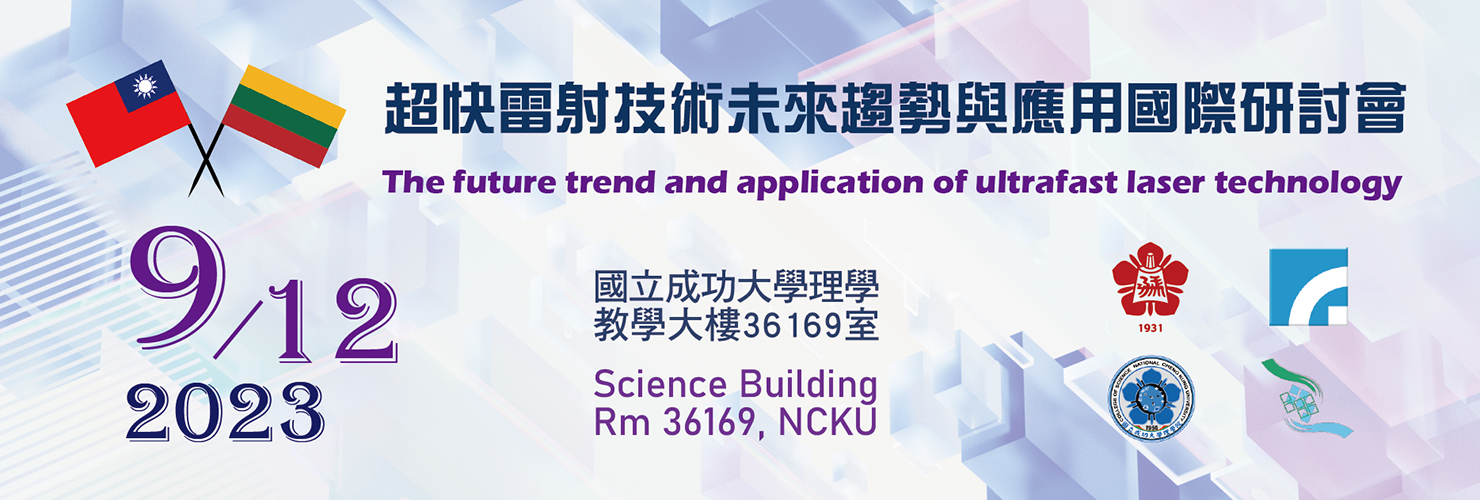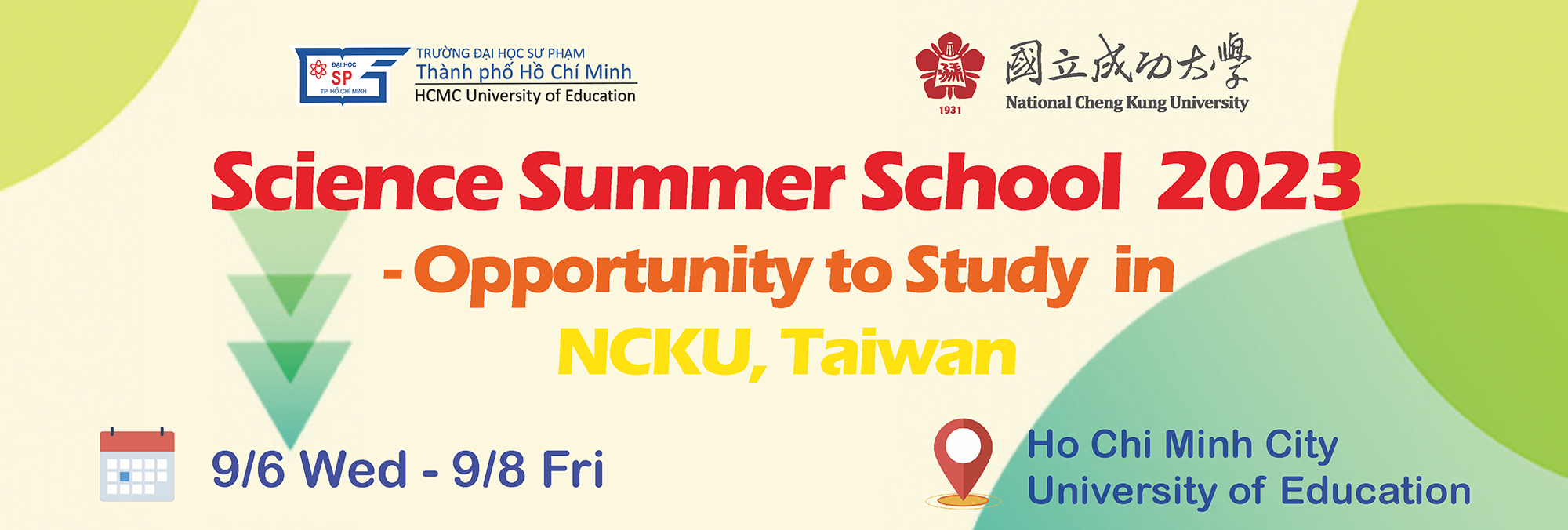Departments

Situated in the heart of the beautiful and tranquil Cheng Kung Campus, the Department of Mathematics was founded in 1956. In this celebrating year, the former school, then known as Taiwan Provincial Engineering College, was upgraded to a national university, called Provincial Cheng Kung University, now called National Cheng Kung University. In order to lay down a firm and stable foundation of our science and technology for future development, the actual work of the Department is to train students in both pure and applied mathematics. In response to the urgent needs of the rapid growth of our society, the Department has offered an evening program since 1973. In 1978, the evening division was renamed the Department of Applied Mathematics in contrast to that of the day school. In order to upgrade the foundation of research in Mathematics of the southern part of the country, the Graduate School of Applied Mathematics was founded in 1980, offering M.S. degree. In 1992, due to the maturity of the research atmosphere, the Graduate School started Ph.D. programs in both pure and applied mathematics. Since 1997, the Bachelor program offered by the adult education division has replaced the degree program in the night division.

Found in 1956 when the former Taiwan Provincial College of Engineering was recommissioned into the Cheng-Kung University. The Institute of Physics was established in 1971 with Master of Science program, and the Ph.D. program was added in 1988. Our department emphasizes equally in the high quality of teaching and research. Currently we have 14 professors, 1 adjunct professor, 13 associate professors, 6 instructors. Our faculty actively engages researches in Low-Temperature Physics, Optical Thin-film, Surface Science, Semiconductors, Optoelectronics, Nonlinear Science, Magnetic Properties of novel materials.

The Department was founded in 1959, and in 1976 began to offer evening classes as part of the Night Division of the University. In 1984 a master's degree program was established. In 1992 a Ph.D. program was established. The original department building has two floors and is located in the center of Cheng Kung Campus. In front of it is the department of mathematics, to the south of it is the department of Physics, and to the east is the department of Materials Science and Engineering. In 1988 a six-story annex was constructed, providing the Department with more space.

The Earth Science Department at Cheng Kung University was first established in 1968. A graduate division was later added in 1990 and six years later, in 1996, a Ph.D. program was created. In 2003, a continuing education at master level was set up completing the department. In the last ten years or so, our faculty, student population, facilities and teaching standards as well as research achievements have blossomed tremendously, securing a leadership role in the fields of applied earth science. Currently, our department has about 20 full-time professors at maximum, 3 part-time professors, an undergraduate class of ~170 students, a masters program of ~50 students, a doctoral program of ~40 students, and a masters program for working professionals of ~50 students.

In view of great advances in electro-optical technologies in the past decade, National Cheng Kung University (NCKU) established Institute of Electro-Optical (E-O) Science and Engineering (EOSE) (Master programs) in 2002. PhD program is scheduled to start in 2004. EOSE has identified the following areas for future development: flat panel displays, optic communication, photonic devices, and bio-medical electro-optics. EOSE integrates E-O resources, manpower within NCKU to provide services to electro-optical industries in Taiwan, especially in Tainan Science-based Industrial Park. The first director is Prof. Fuh (2002/8~2009/01) The second director is Prof. Hsieh (2009/01~)

National Cheng Kung University has established Institute of Space, Astrophysical, and Plasma Sciences since August of 2008 , and then renamed as Institute of Space and Plasma Sciences in August of 2013. Incorporated with the research momentum from Plasma and Space Science Center established from 2006, the institute has started to advance researches such as on experiments, theory, and simulation on various plasma phenomena. The institute also join space science experiments for satellitesand rocket missions, national astronomical observational projects, and international fusion energy research joint plan. At the same time we also promote research activities on high-energy astrophysics based on plasma sciences. By performing this strategic plan, the institute can produce excellent scholars in high-temperature plasma, space sciences, astrophysics, and fusion energy at both master and doctoral levels.

Minor project/Tainan of the National Center for Theoretical Sciences (NCTS) is hosted by the National Cheng Kung University (NCKU) at Tainan. The project principal investigator (PI) is Prof. Ying-Guey Fuh , the dean of college of Science of NCKU. This project consists of mathematics and physics divisions in the beginning stage. The main goal of this project is to move the research of mathematics and theoretical physics in Tainan area (Chia-yi, Tainan and Kaoshiung) toward a research organization of excellence, to induce and enhance the integration and collaborations of researchers among different institutions, to attract and develop top quality talents, to invite outstanding international scholars for collaborations, to host local and international workshops and other academic activities for forming and promoting competitive research groups in the international community, such that we can eventually establish an excellence research organization structure for theoretical science in Tainan area. The operation of this minor project consists of the staff scientists, research terms and various academic research projects.




